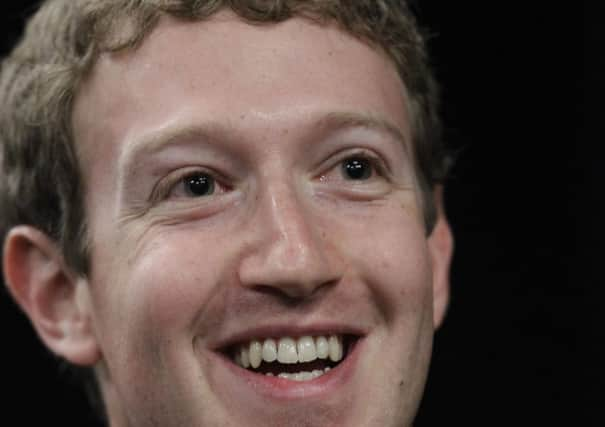Mark Zuckerberg: Are we seeing a new age of philanthropy?


IF you had a spare £30bn, what would you do with it?
You could set up that business you always talked about, buy a football club, as well as that dream house and still have enough spare change left to never worry about money ever again. Or you could give it all to charity – which is precisely what 31 year-old Mark Zuckerberg is doing.
The Facebook founder and his wife Priscilla Chan have are giving away 99 per cent of their shares in the company to good causes following the birth of their daughter Max. In a letter the couple said they were making the extraordinary donation because they wanted to make the world a better place for their daughter to grow up in.
Advertisement
Hide AdAdvertisement
Hide AdThe American billionaire investor Warren Buffett was to quick to congratulate the couple proclaiming that when it comes to giving away your fortune, “30 is the new 70”.
The couple’s donation has propelled them into the big league but are they part of a new breed of philanthropists, or just an extension of charitable acts that wealthy people have been making for centuries?
Certainly if you mention the word ‘philanthropist’ it tends to conjure up images of rather stern-looking Victorians with whiskers and top hats.
Yorkshire has a great philanthropic spirit that can be traced back to the likes of Joseph Rowntree and Titus Salt, right up to the modern day and people like the late Jimi Heselden. In the past, philanthropists were usually either industrialists or oil barons, now they’re just as likely to have made their money through the internet.
Advertisement
Hide AdAdvertisement
Hide AdThese days charitable giving is big business with over 195,200 charities registered in the UK. Together they employ more than one million staff and raise £80bn each year – second only to the US.
It shows that even in this age of austerity there is still a deeply ingrained culture of giving in this country.
Universities are often among the biggest recipients of these acts of generosity. The university of Leeds’s new £26m Laidlaw Library, which opened last summer, included a £9m gift, the biggest in the university’s history, from former student Lord Laidlaw to support the development of the library.
Arguably the most famous global philanthropist is Microsoft co-founder Bill Gates, who has also given more money to charity than anyone else in history.
Advertisement
Hide AdAdvertisement
Hide AdIn 2000 Gates, along with his wife Melinda, set up the Bill and Melinda Gates Foundation which has supported Aids prevention organisations and efforts to tackle diseases like malaria and tuberculosis which are ravaging countries across the developing world.
This so-called “Gates effect” is often cited as having encouraged a new form of philanthropy, with businessmen and entrepreneurs not only giving up their money but also their time and skills to help a cause.
Marcelle Speller is one of the new breed of philanthropists. She set up Localgiving, an online fundraising network which has helped raise over £9m for local charities. But as Speller points out it’s not all about the mega rich, ordinary people are making a difference, too.
She says: “Technology has made it easier for people to make a difference because now they can just pick up their mobile phone or go online.”
Advertisement
Hide AdAdvertisement
Hide AdCritics might argue that a lot of philanthropy is linked to egoism, but despite this and all the talk about of corporate responsibility Speller believes there is often a simpler reason why people want to give their wealth away.
“You can’t spend £30bn no matter how hard you try,” she says, “and what we are seeing is people who have earned huge amounts of money are finding they are having more fun giving it away than they did making it.”